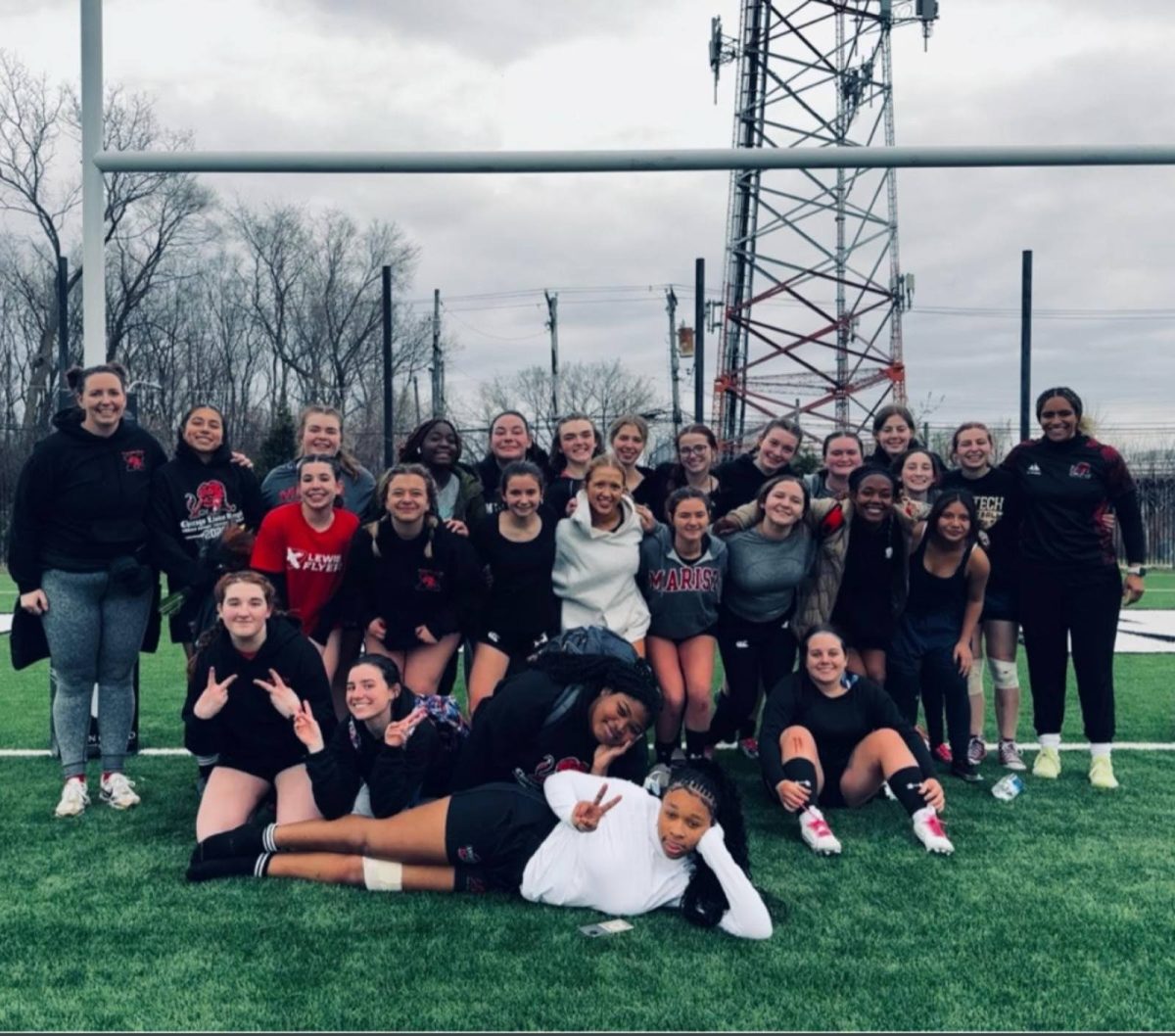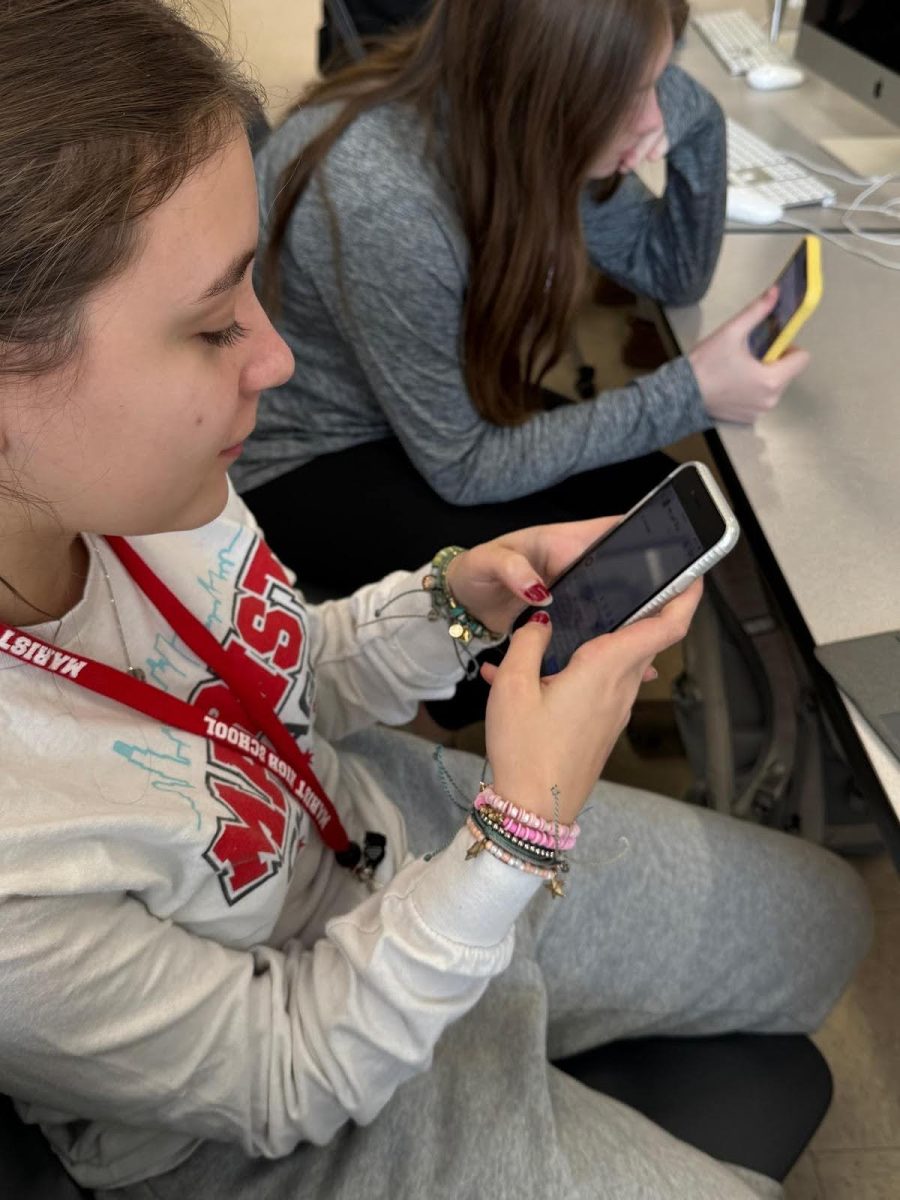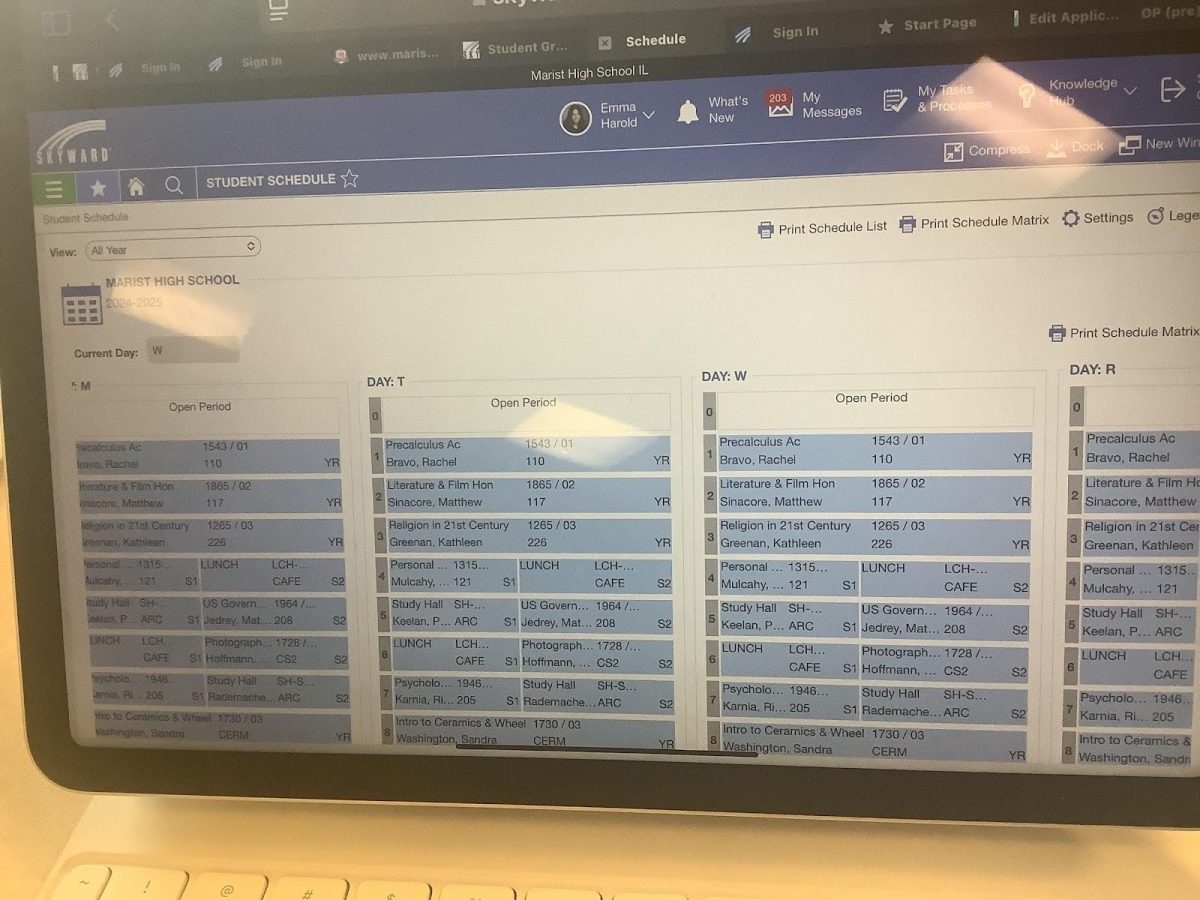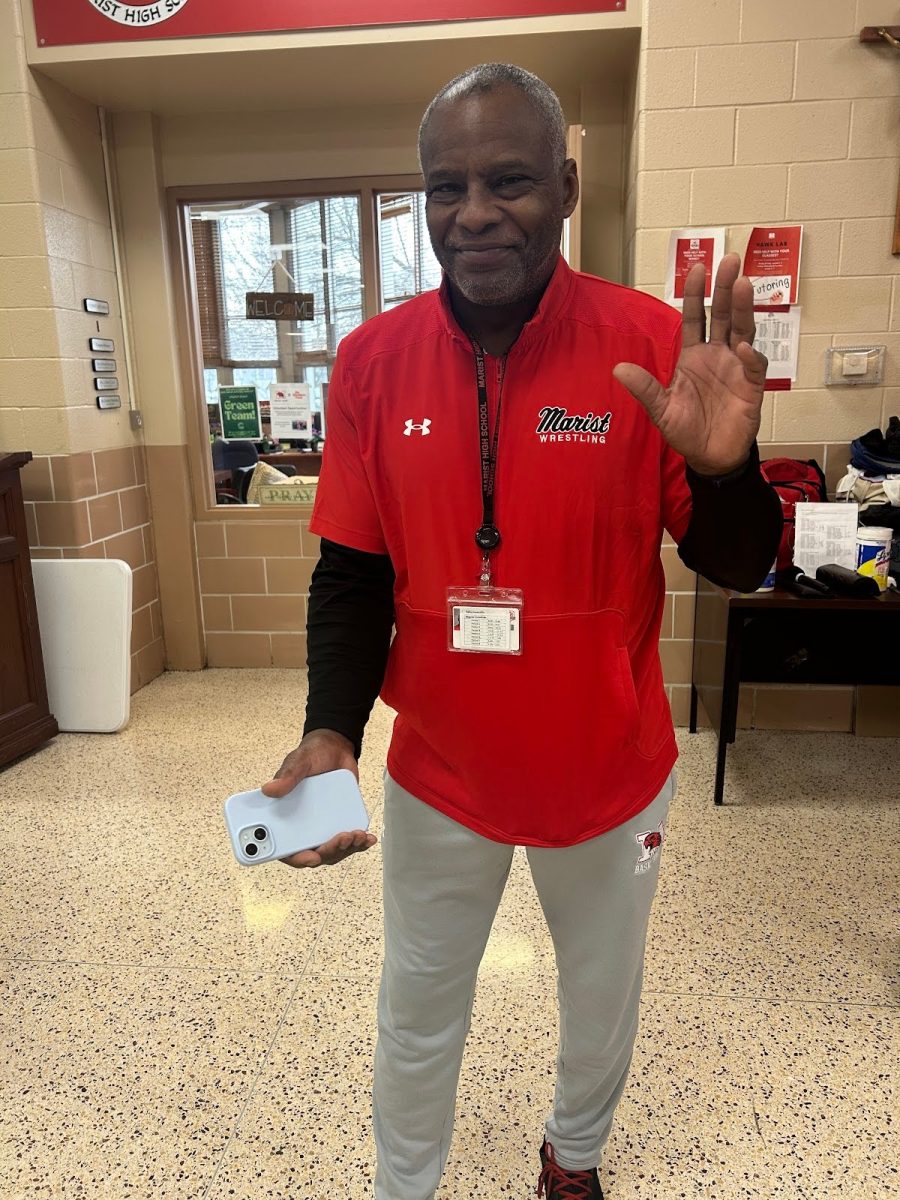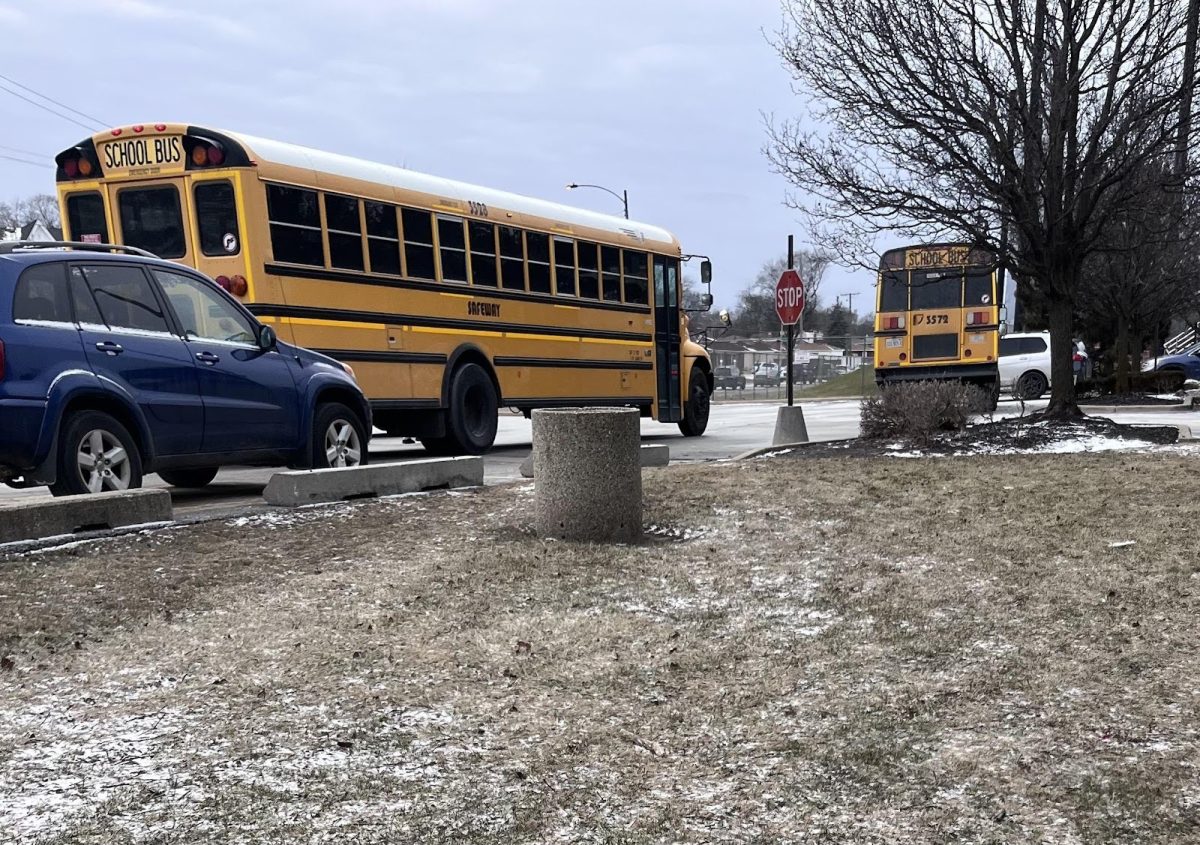The concept of senioritis is often referred to among the upperclassmen but not many understand the truth behind it. There are several different interpretations and perspectives of this term when it comes to teachers, students, and counselors.
“Senioritis, very simply to me, is seniors choosing to not do any work because they feel like they are done with high school, when in reality they are not,” says college counselor Ron Dawczak.
From senior Matt Harmon’s perspective, senioritis is the unintentional lack of motivation after getting into college. This can put a dent in a seniors’ attendance, grades, and learning.
“It’s affected my school work because I’m less motivated and I just want to get it done for the points, not get it done for the learning aspect of it,” says Harmon.
This feeling can be more severe for different students. Senior Emma Harold has noticed a heavier toll on her mental health and energy to keep up with school work.
“I am way less motivated to get my work done this year compared to my other years of high school. This feeling has only worsened since I have been accepted into colleges,” says Harold.
Mental health is one of the leading factors of senioritis. The stress of college can affect how eager seniors are to stay on track and complete their work. Regardless, Harmon has optimism that he will push through.
“I feel like I’m just going to get more senioritis as the year goes on, so I don’t know how my mental health will be, but I am a pretty chipper guy, so I don’t think anything will bring me down,” says Harmon.
According to Dawczak, senior-year grades have an effect on college applications. It is required that transcripts be sent to colleges after the first and second semester.
“The more selective colleges will look at that a little bit closer, but they can impact the admission if there is a precipitous drop in the performance during senior year,” says Dawczak.
There is also another leading factor as to why seniors could be losing interest in school so quickly: technology.
In recent years, the administration has noticed a lack of attention on school work in general. There is lots of talk that this loss of focus has to do with the boom of the internet and TikTok.
Most teachers have to deal with the challenges of student inattentiveness, including senior teacher Mr. Sinacore.
“I think there’s already a base level of attention we have already lost due to being engraved in technology,” says Sinacore.
Senior year can also bring up emotions in seniors that many are not ready for. The sadness of leaving soon and the disappointment of growing up, while also preparing for the next chapter of life.
“When it comes to the second semester of the senior year, it sometimes feels like an overwhelming sense of ‘I’m done with this.’ If it was a slight challenge in the first semester it grows 100 times over for the second semester,” says Sinacore.
Senioritis can also start earlier for some students. As college applications start in the beginning of fall, they introduce a new level of stress. Some can be caught blindsided by the amount of effort applications require.
”I was unprepared for the stress of college applications. I didn’t start them in the summer so I was a little taken aback plus the workload of senior year didn’t help with the stress of getting them in one time either,” says Harold.
This high pressure can lead to student burnout once applications are all finished. Regardless, there are strategies to overcome senioritis. Looking at the big picture of what college life has in store for seniors can be a big motivator.
“Just continuing to remember that you have so many good things to look forward to if you finish out senior year strong,” says Dawczak.
















